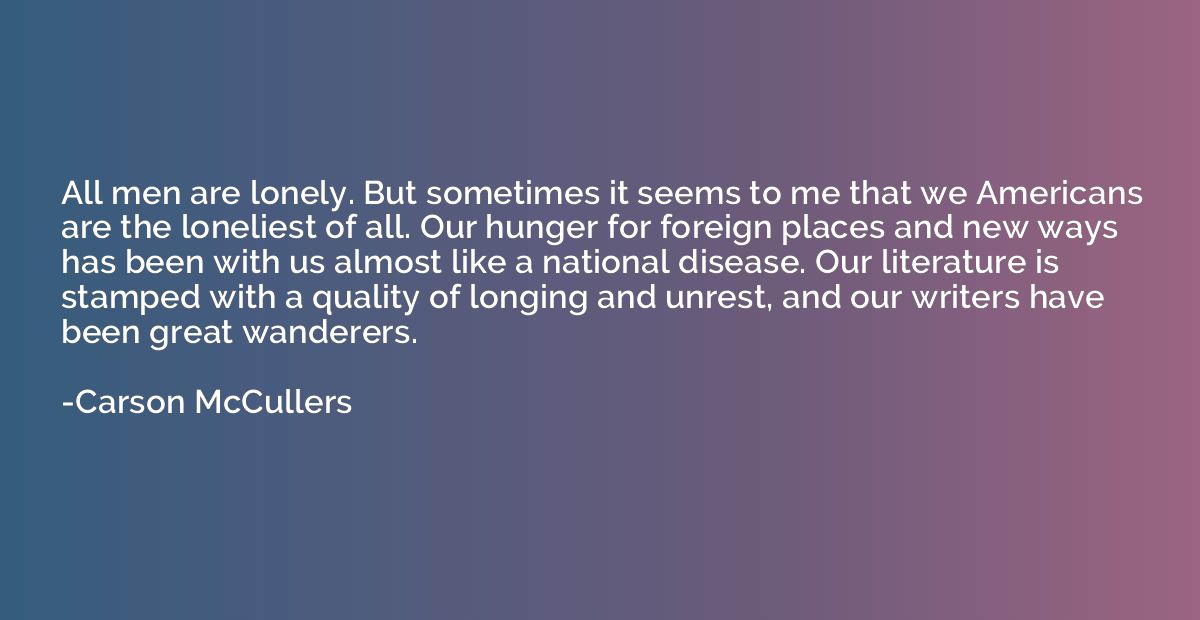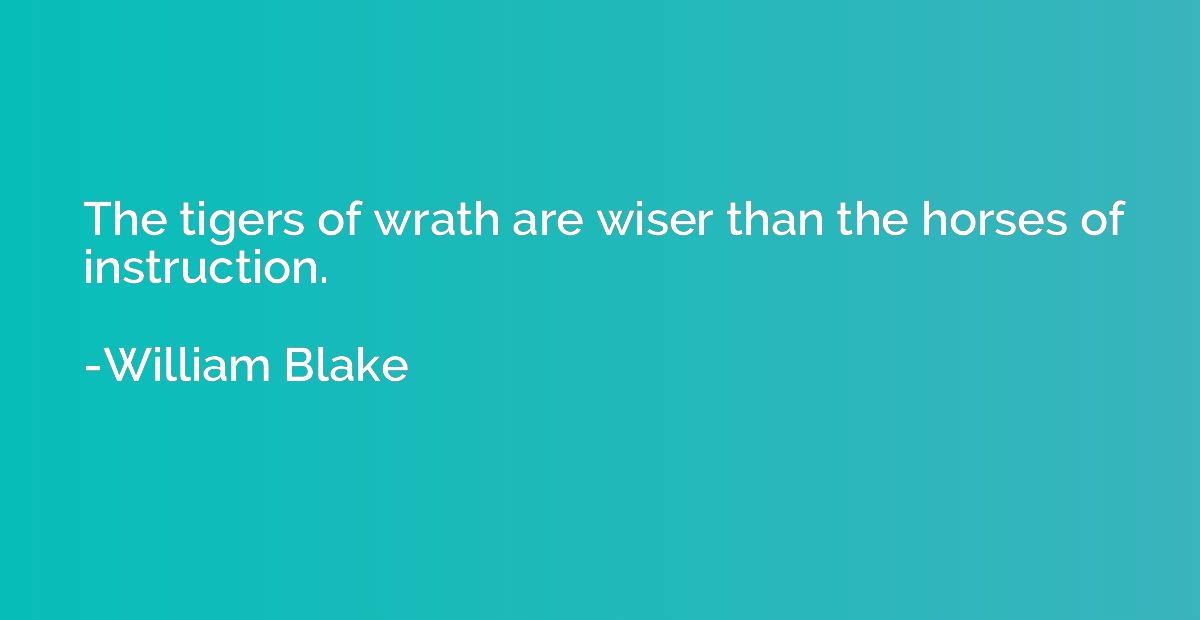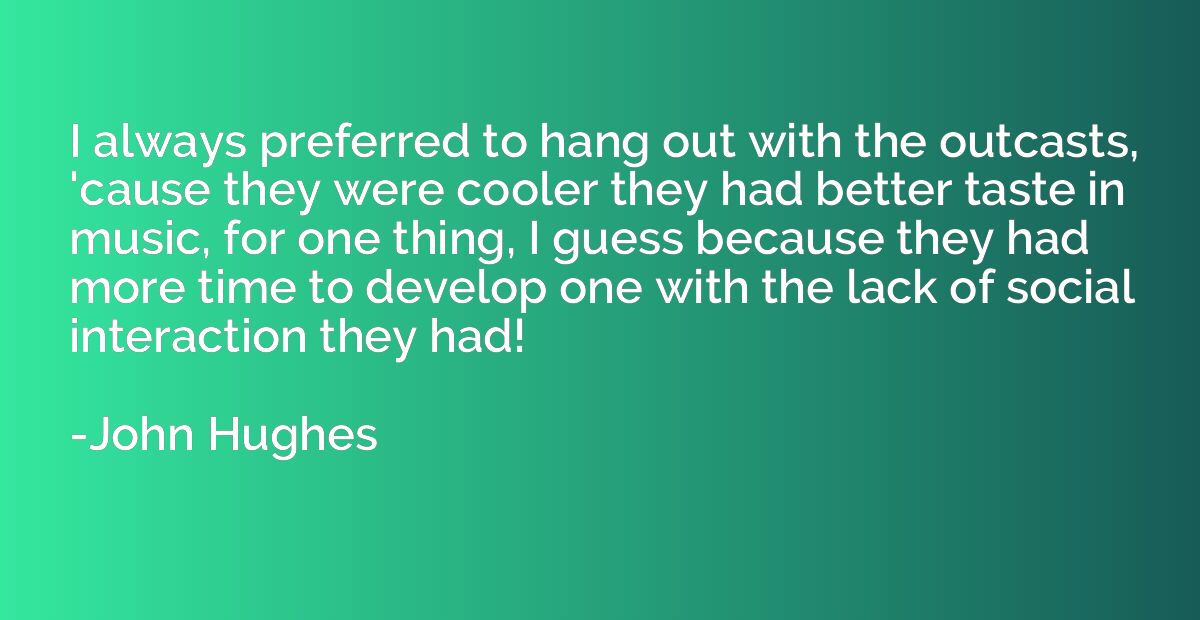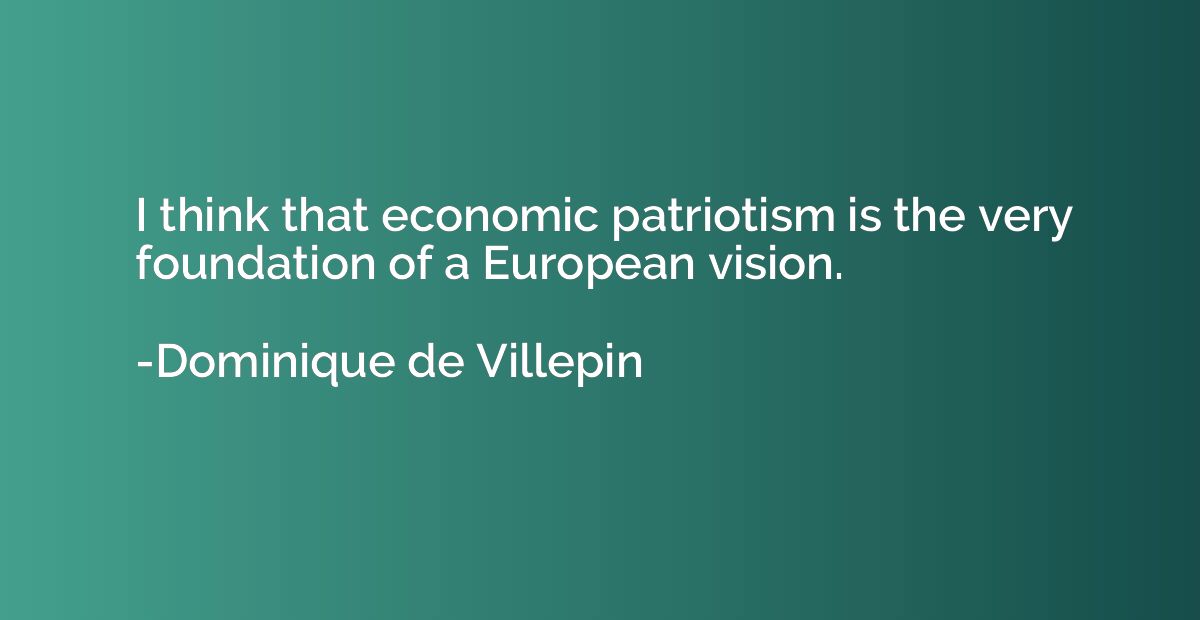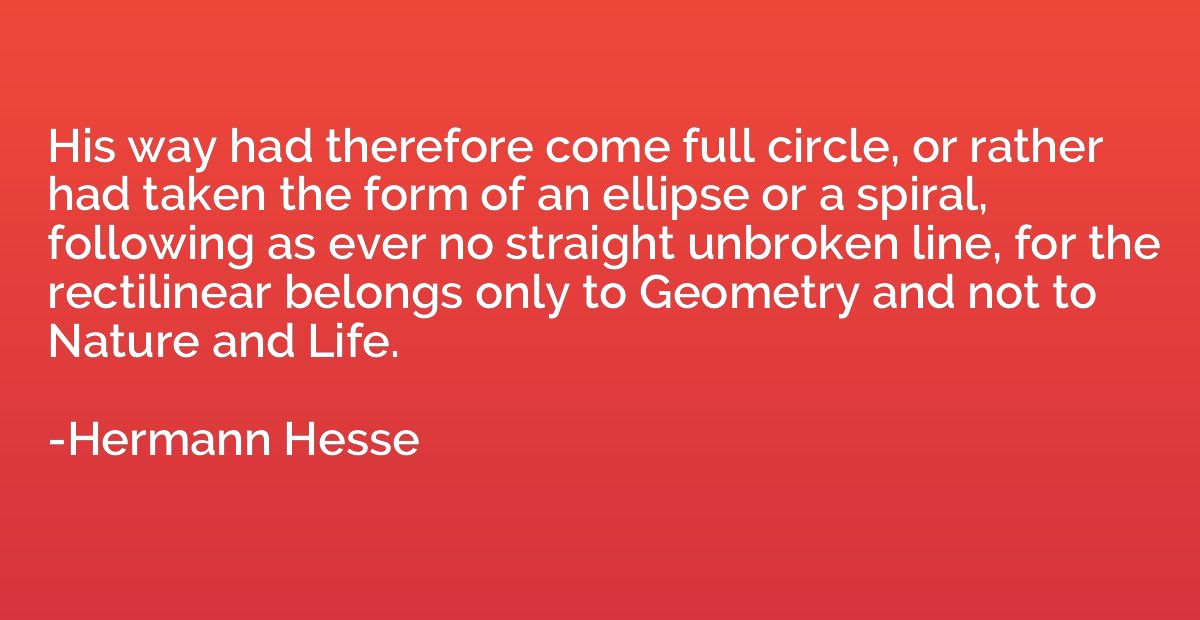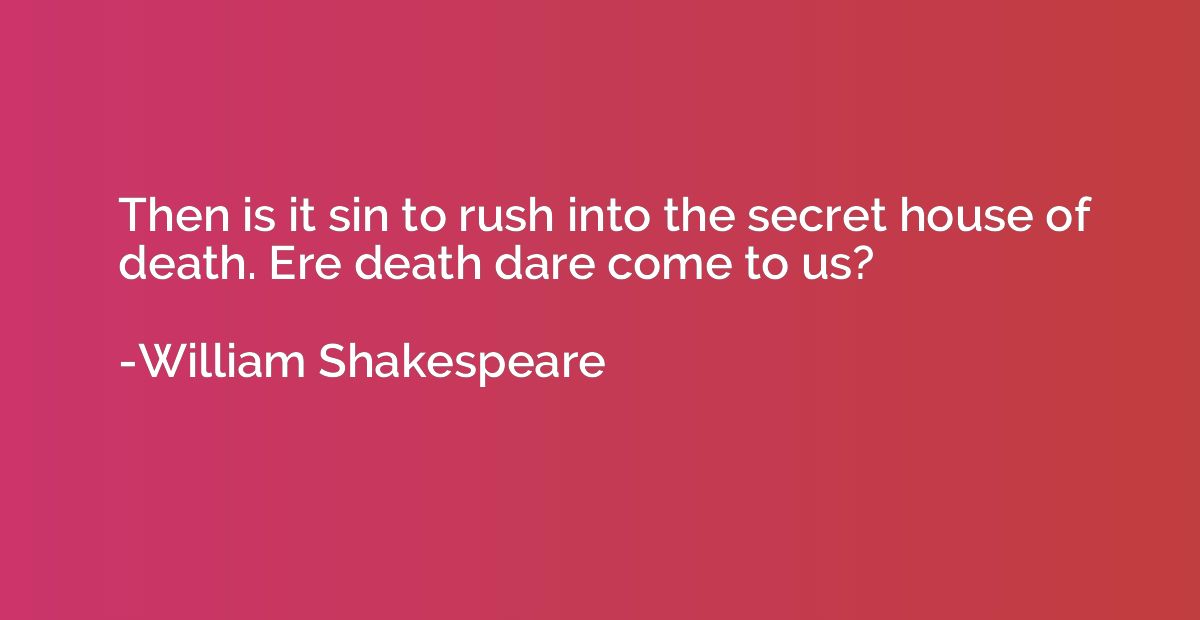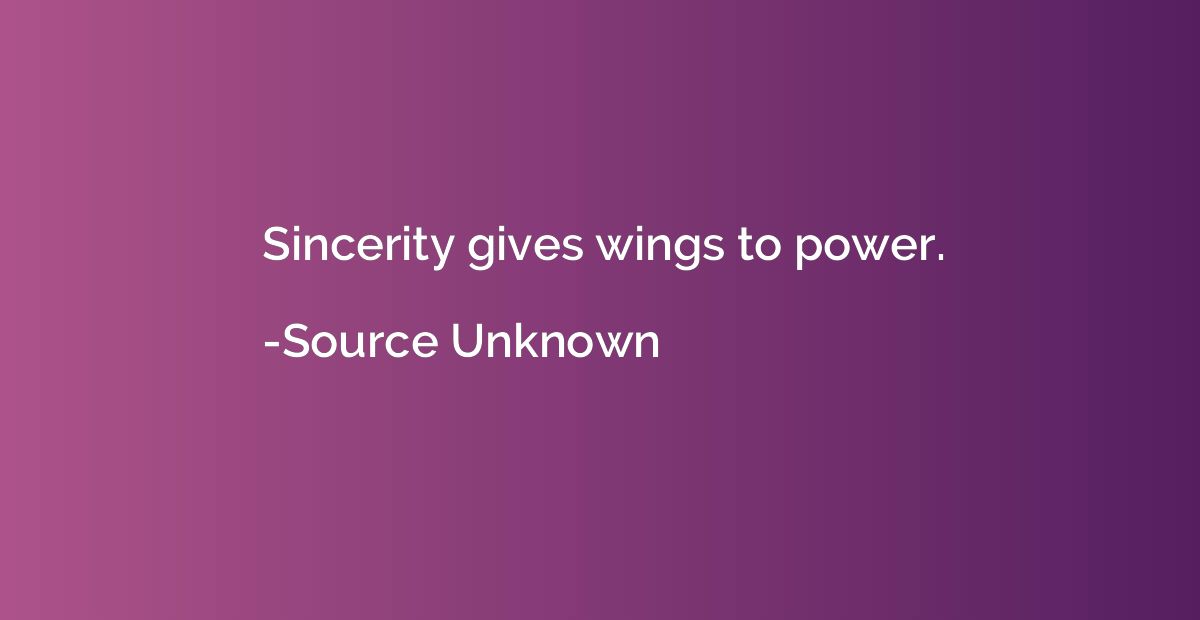Quote by John Green
Ultimately, it doesn't matter if the author intended a symbol to be there, because the job of reading is not to understand the authors intend. The job of reading is to see into other people as we see ourselves.
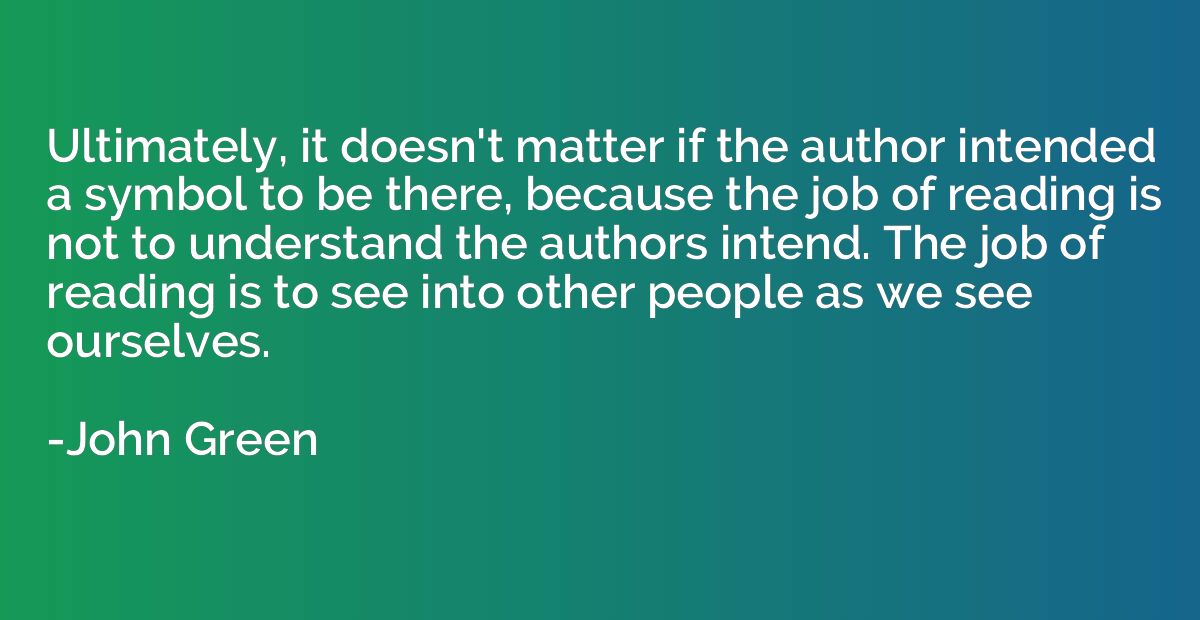
Summary
This quote suggests that it is not necessary to focus on the author's intended symbolism in literary works. The act of reading should be about understanding and empathizing with others, just as we understand and relate to ourselves. It implies that the interpretation of a text should be open to individual perspectives, allowing readers to connect with the characters and themes on a personal and relatable level, rather than strictly adhering to the author's intended meaning.
By John Green



